|
"Identification",
performance
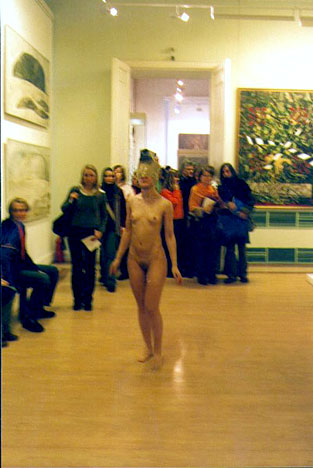
Materials: my body, video camera, video monitor, multicolored beads.
Concept: a rational, "passionless" male glance, claiming to be objective and represented by a vision. A camera "eye" symbolically embodies it.
Female perception and path are related to tactile sensation, sounds and smells. They are subjective.
In the course of the performance, I am trying to single out components of male and female perception and combine them overcoming binary oppositions.
Action: I am naked. A working video camera is attached to my head blindfolding me. I am slowly moving by touch across the museum hall space. I am noting my tactile sensations from people and objects that I come across with colored beads that I keep in my mouth. The endpoint of my way is a video monitor located at the opposite side of the exhibition hall.
I watch the video recording of my journey, completing my tactile and sound impressions with visual ones and so returning myself the perception integrity.
Duration 20 minutes.
Press:
"And if a group exhibition like "Gender Trouble,"
for example, can be summarily dismissed by an American journalist
with, "Haven't we been here already?" I wasn't
sure how to dismiss the blindfolded, stark-naked performance
artist with a video camera taped to her head who cornered
me and other random spectators at the packed opening, blindly
groping and filming us at the same time. When was this contemporary,
and where was this now? Yes, there was something a bit familiar
about it, maybe early-'90s SVA via '70s shades of Valie
Export. Still, I suddenly had the feeling that here, for
a fleeting moment, a discrepancy between simultaneous contemporaries
was not merely possible but literally embodied. In Moscow,
examples of "legitimate" contemporary art were
vastly outnumbered by works that no European curator would
give a second glance, and the real question wasn't which
version was most adequate or timely (it's all too obvious
anyway) but how we might think about this discrepant simultaneity
in a less-neutralizing, less-programmed way. . . . If only
a biennial could elaborate this gap, expand on and into
it".
"Russian Front: The Moscow Biennale", John
Kelsey, "Artforum", 03.04. 2005.
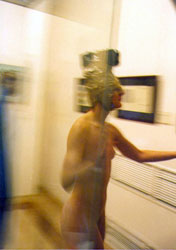
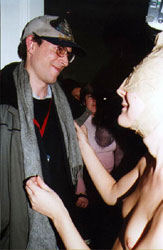
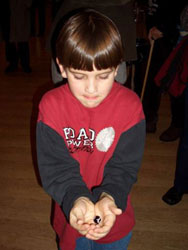
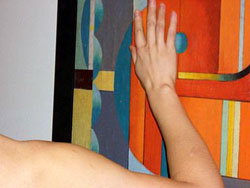
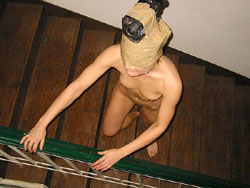
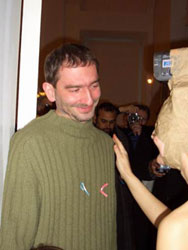
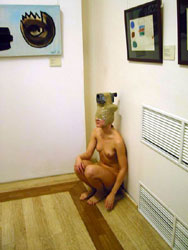
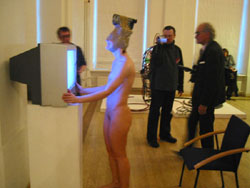
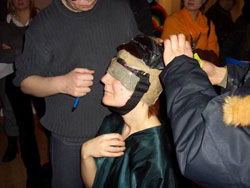
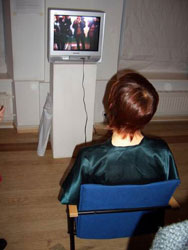
|

